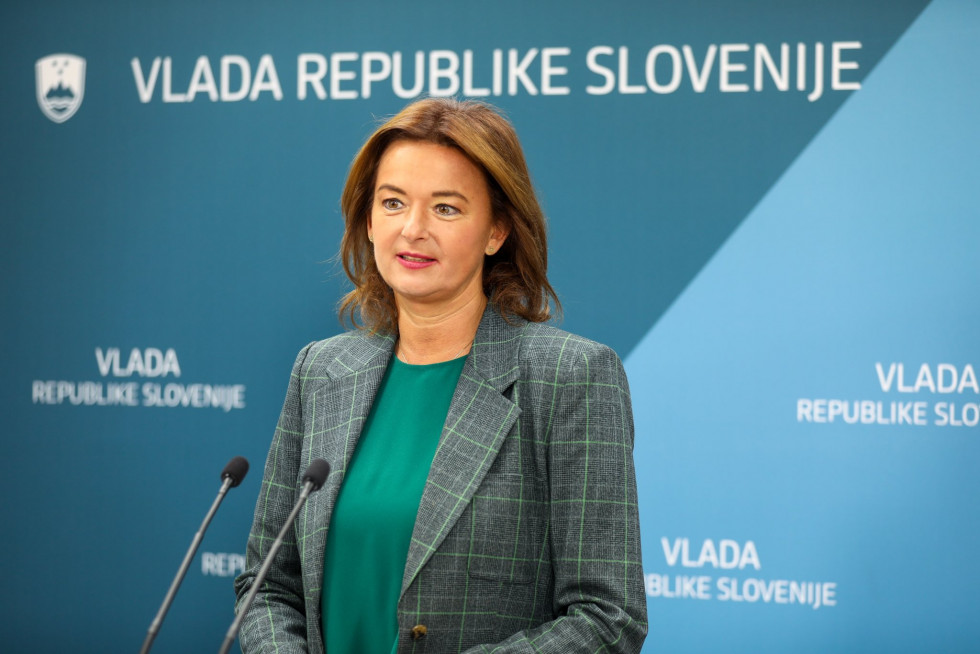Minister Fajon: Slovenia one of the few EU Member States in the ICJ advisory opinion proceedings against Israel
The proceedings were initiated by the United Nations General Assembly on the basis of a resolution adopted in December 2022, which was also supported by Slovenia at the time. This was a request to the International Court of Justice (ICJ) in The Hague for an advisory opinion on the human rights implications of Israel's actions in the occupied Palestinian territories (Gaza, West Bank, including East Jerusalem) and the alleged violation by Israel of the Palestinian people's right to self-determination.
Israel’s allegedly controversial activities are:
- Israel’s prolonged occupation, settlement and annexation of Palestinian territory – since 1967;
- Israel’s efforts to change the demographics, character and status of Jerusalem; and
- Adoption of legislation and measures that discriminate against Palestinians.
“This is a very broad spectrum of alleged violations that have been committed in the region for decades and whose horrific consequences are still visible today. In the light of recent events in Gaza and the West Bank, Slovenia, as one of the few EU countries, has decided to actively participate and present its views in these proceedings before the International Court of Justice, which has been asked to give an advisory opinion,” said Tanja Fajon, Minister of Foreign and European Affairs, at a press conference following the adoption of the decision at the meeting of the Government of the Republic of Slovenia.
Slovenia's position on the conflict in the Middle East is clear and has been expressed many times: “We strongly condemn the violence of both Hamas in Israel and of Israel in Gaza – civilians must not be targeted. We draw attention to the serious violations of international humanitarian and human rights law in Gaza. Since 7 October 2023, 23 thousand Palestinians have been killed, 70% of them women and children. 1.9 million people have been displaced, representing almost 85 per cent of the total population. We also strongly condemn any intention to expel the Palestinian population from Gaza or the West Bank and to reduce the size of the Palestinian territory. Slovenia has consistently called for additional sanctions against Hamas and violent Israeli settlers in the West Bank, as well as for the establishment of a permanent ceasefire in Gaza, unrestricted humanitarian access and the early start of a two-state solution peace process, including international recognition of the State of Palestine, with the ultimate goal of peaceful and secure coexistence between Israelis and Palestinians,” added Minister Fajon.
The Court has fixed 19 February 2024 for the start of the oral hearing. Slovenia’s turn will come on 23 February. Representation of the Republic of Slovenia in the proceedings before the International Court of Justice in The Hague is coordinated by the Ministry of Foreign and European Affairs.
The request to the ICJ for an advisory opinion is also an opportunity to restore confidence in the credibility of international institutions when it comes to the situation in Gaza.
With regard to a separate case filed by South Africa with the ICJ, Minister Fajon said: “The proceedings are not yet at the stage where any other state except South Africa and Israel could intervene. No country can 'join' this action in such a way at this stage when the court is deciding on provisional measures and before the Court has ruled on its jurisdiction. This will only be possible at a later stage or when the Court so decides. Slovenia will certainly follow the proceedings closely. We will decide on any intervention in this particular case when it becomes possible and on the basis of legal arguments.”
Slovenia supports the proceedings regarding the violation of the Genocide Convention, both in the case of Ukraine and Palestine. As a defender of international law, Slovenia fully supports the work of the International Court of Justice and hopes that it will rule on this case as soon as possible. “Only the Court can decide whether certain acts constitute genocide or not. No state, organisation or political representative has the mandate to take this decision this instead of the Court,” said Minister Fajon.


